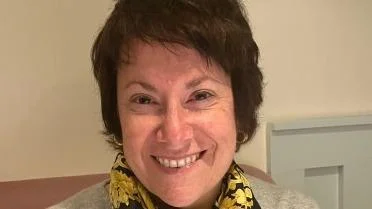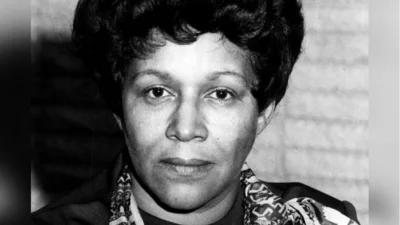Ann & Robert H. Lurie Children's Hospital of Chicago issued the following announcement on April 24.
Minority parents were more concerned about bullying
Parents of boys and girls were equally likely to consider bullying a big problem
Parents who considered bullying a big problem were also likely to consider other mental health issues big problems, such as depression, stress, social media, and suicide.
Seventy six percent of Chicago parents said that bullying, including cyberbullying, is a big problem for children and adolescents in the city, according to results of a new survey released by Ann & Robert H. Lurie Children’s Hospital of Chicago and the Chicago Department of Public Health (CDPH). Latinx parents were the most likely to report that bullying is a big problem (84 percent), followed by non-Latinx Black parents (78 percent) and non-Latinx White parents (63 percent). Parents of boys were just as likely to be concerned about bullying as parents of girls (79 percent and 78 percent, respectively).
Previous research has revealed that parents are right to worry. In 2017, 15 percent of Chicago high school students said they were bullied on school property and 12 percent said they were cyberbullied.
“Our results show that bullying and cyberbullying are a major concern for Chicago parents when it comes to children and adolescents in our city,” says Matthew M. Davis, MD, MAPP, Senior Vice President and Chief of Community Health Transformation at Lurie Children’s, and Professor of Pediatrics, Medicine, Medical Social Sciences, and Preventive Medicine at Northwestern University Feinberg School of Medicine. “The differences we see in parental concerns according to ethnic or racial background highlight the need to direct efforts to prevent bullying and provide support to children and adolescents broadly, in many communities.”
Surprisingly, the child’s gender did not play a role in bullying from Chicago parents’ perspectives. Nationally, girls are more likely than boys to report being bullied. Previous research also suggests that girls tend to be cyberbullied more than boys.
The current survey also found that parents who were very concerned about bullying considered other mental health issues as big problems facing Chicago youth as well. These included depression (considered a big health problem by 78 percent of parents), stress (74 percent) and suicide (67 percent).
“These parent views underscore that many parents realize that bullying and mental health issues are interconnected,” says Dr. Davis. “We know that youth who are victims of bullying and cyberbullying are at increased risk for anxiety and depression, self-harm and misuse of alcohol and drugs. Kids who are bullying others often have behavioral health concerns too, and may be victims of bullying themselves. For these reasons, interventions to address bullying must also tackle mental and behavioral health issues in children and adolescents.”
Parents can learn how to stop bullying through organizations such as STOMP Out Bullying and at www.stopbullying.gov. More resources are available through Lurie Children’s Center for Childhood Resilience, which provides training, education, and outreach to school professionals, community agencies, city leaders and parents to increase young people's access to mental health services.
Through this collaboration, Lurie Children’s and CDPH are working toward key goals of Healthy Chicago 2.0, the citywide plan to promote health equity, by making sure that decision-making is informed by data and community perspectives.
“Children need to feel safe and supported to thrive. CDPH takes bullying seriously as a public health issue, and we are collaborating with Erie Neighborhood House and the Midwest Asian Health Association to support youth, families and communities that are impacted by bullying and suicide,” says CDPH Commissioner Julie Morita, MD. “We are excited to use this new information as we focus our efforts on keeping children safe in their schools and communities across Chicago.”
Survey results are based on the 2017-18 Healthy Chicago Survey, Jr., that was developed by Dr. Davis in collaboration with the CDPH Office of Epidemiology and Research. Phone interviews were conducted with 3,310 adults, including 1,002 parents, December 2017 through June 2018. Households across Chicago were randomly selected, with participants in all 77 community areas.
To share the survey results, Dr. Davis and his team at Lurie Children’s launched “Voices of Child Health in Chicago,” a research program focused on bringing the perspectives of Chicagoans to inform dialogue and action about child health in the city. On a regular basis, data briefs will be issued that report on a wide range of survey result topics that affect youth health.
Population-focused child health research at Ann & Robert H. Lurie Children’s Hospital of Chicago is conducted through the Mary Ann & J. Milburn Smith Child Health Research, Outreach, and Advocacy Center at the Stanley Manne Children’s Research Institute. The Manne Research Institute is focused on improving child health, transforming pediatric medicine and ensuring healthier futures through the relentless pursuit of new knowledge. Lurie Children’s is ranked as one of the nation’s top children’s hospitals in the U.S. News & World Report. It is the pediatric training ground for Northwestern University Feinberg School of Medicine. Last year, the hospital served more than 212,000 children from 49 states and 51 countries.
Original source can be found here.

Source: Ann & Robert H. Lurie Children's Hospital of Chicago






 Alerts Sign-up
Alerts Sign-up